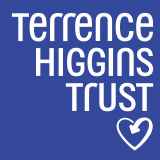Mental health
If you suffer from anxiety or depression, using party drugs can make your symptoms worse. They can also increase your risk of developing more serious mental health problems.
If you’re prone to mental health problems of any kind, using drugs can trigger them. But you might not realise you’re vulnerable to mental health problems and only discover this when drugs start a problem off. The heavier and longer your drug use, the more likely you are to have mental health problems.
Depression
For many guys, drugs getting out of control and depression can go hand in hand.
Being worried about an issue, or an aspect of your life, can lead to depression – which can make the escapism that drugs offer very compelling. The comedowns and time spent partying can make dealing with the main issues even harder, which can make the depression worse.
Stopping or cutting back on drugs can give you the time and energy to tackle some of those big issues in your life, and make some long-term changes to help you feel happier and healthier.
Anti-depressants and recreational drugs
Anti-depressants work to increase the levels of chemicals in your body that can influence your mood and emotion.
Recreational drugs often work by using up similar or the same chemicals in your body in a short space of time, which is one of the reasons you feel so bad on a comedown. As such, recreational drugs can interrupt or stop anti-depressants working properly.
If you need more information, talk to your GP.
Some anti-depressants can also interact dangerously with recreational drugs such as MDMA, speed, crystal meth, acid and cocaine. They can boost levels of the street drug in the body to dangerous levels. Citalopram and cocaine could put you at risk of bleeding or haemmorhage.
Pre-existing conditions
Someone diagnosed with a serious mental illness such as schizophrenia or bipolar disorder should definitely not use recreational drugs.
Psychosis
Serious mental illness, such as psychosis, can be the result of heavy use of some drugs.
Psychosis is where people may see or hear things that aren’t there, or have unusual beliefs that most people would not believe or that are not in keeping with their culture. An example is someone believing they are the devil or Jesus or that someone is trying to harm them. Read more about psychosis.
These drugs in particular have been linked to mental health problems, especially if used heavily:
- amphetamines (speed and crystal meth)
- mephedrone
- cocaine/crack
- cannabis
- acid/LSD
- ketamine
It’s still unclear whether MDMA increases the risk of depression or long-term memory loss.
It’s also worth remembering that alcohol is a depressant so it will make someone with depression feel worse, especially if they’re a long-term, heavy drinker.
Check out the individual sections about these drugs for details on their possible effects on your state of mind.
Serotonin syndrome
A potentially life-threatening reaction called ‘serotonin syndrome’ can occur when you mix some kinds of drugs (like antidepressants and MDMA). The brain releases too much of its feel good chemical serotonin and it accumulates in the body.
Symptoms include:
- a fast heart beat
- sweating
- muscle spasms
- shivers and high temperature
- agitation
- insomnia.
If this happens to you or someone else, you need to seek urgent medical help.
Talk to your doctor
If you’re prescribed anti-depressants check with a doctor about possible interactions with any recreational drugs you might take.
The doctor might be able to give you a different type of anti-depressant, one less likely to have a bad reaction with street drugs.
Other medical conditions
Your liver, kidneys, heart rate, blood pressure and circulation are parts of your body affected by street drugs. So if you have any existing medical conditions linked to these parts of the body, street drugs could put too much pressure on them.
People with the conditions listed below should be very cautious about taking recreational drugs and discuss it with a doctor. They may be best advised to avoid them completely if they have:
- high or low blood pressure
- heart conditions
- epilepsy
- glaucoma (abnormal blood pressure in the eye)
- a history of stroke or seizures.
If your liver has been damaged by hepatitis (A, B or C) or you’re recovering from these, it’s advisable not to take alcohol or party drugs.
It’s possible that someone can have a medical condition such as a heart defect without realising until a drug-related medical emergency identifies it.
Next section: Breaking the cycle ››
Published: 31/08/2018
Next review: 31/08/2021



